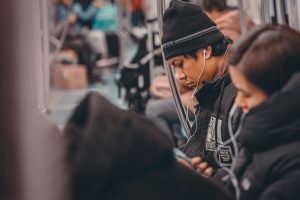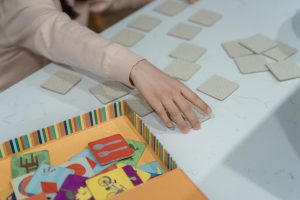Revolutionizing skill-based learning through education equity
In today’s rapidly changing world, acquiring new skills and knowledge is essential for personal and professional growth. However, access to quality education and learning opportunities is not equitable for everyone, creating a divide between those who can advance their skills and those who cannot. This disparity in education equity has led to a call for revolutionizing skill-based learning, to ensure that everyone has equal opportunities to acquire the skills needed to succeed in today’s competitive job market.
The Problem of Education Inequity
Education inequity refers to the unequal distribution of resources and opportunities among individuals or groups based on their race, gender, socio-economic status, or geographical location. This disparity in education can have a significant impact on an individual’s ability to acquire skills and knowledge, hindering their career growth and potential for success.
In many parts of the world, access to quality education is restricted to a privileged few, while others struggle with substandard educational facilities, lack of qualified teachers, and inadequate learning resources. This creates a vicious cycle in which children from underprivileged backgrounds are unable to acquire the necessary education and skills to break the cycle of poverty and achieve upward social mobility.
Revolutionizing Skill-Based Learning
The concept of skill-based learning is based on the belief that individuals should develop specific skills that are in demand in the job market to enhance their employability and career prospects. However, in a system where access to quality education is limited to a select few, revolutionizing skill-based learning is necessary to promote equity and bridge the gap between individuals with varying levels of education.
Equal Access to Education
The first step towards revolutionizing skill-based learning is to ensure equal access to quality education for all individuals. This can be achieved by investing in public education systems and providing financial support to students from marginalized backgrounds. Governments and organizations can also work together to provide scholarships, grants, and loans to underprivileged students, giving them the opportunity to pursue higher education and acquire essential skills.
Diversity in Learning Resources
Traditional education systems often follow a one-size-fits-all approach, where all students are taught the same curriculum and expected to acquire the same skills. However, in a diverse and ever-changing job market, this approach may not be effective. Revolutionizing skill-based learning involves diversifying learning resources to cater to the different needs and learning styles of individuals.
For instance, online learning platforms, such as MOOCs (Massive Open Online Courses), provide a variety of courses on different subjects, allowing individuals to choose a course that aligns with their interests and career goals. This not only promotes equity but also enables individuals to acquire skills that are relevant and in-demand.
Emphasizing Soft Skills
While technical or hard skills are essential for a job, soft skills, such as communication, problem-solving, and teamwork, are equally crucial for career success. However, traditional education systems often focus on imparting technical knowledge and neglect the development of soft skills. Revolutionizing skill-based learning involves emphasizing the importance of soft skills and providing opportunities for individuals to develop them.
Mentorship programs, internships, and experiential learning are effective ways to develop soft skills, giving individuals the chance to apply their knowledge in real-world scenarios and learn from experienced professionals.
The Benefits of Education Equity
By revolutionizing skill-based learning and promoting education equity, individuals, communities, and society as a whole can reap numerous benefits. Increased access to quality education and diverse learning opportunities can lead to:
Reduced Poverty and Inequality
Education is one of the most powerful tools for reducing poverty and inequality. By providing equal opportunities to acquire skills and knowledge, individuals from underprivileged backgrounds can overcome the barriers of poverty and achieve socio-economic mobility, creating a more equitable society.
Promotion of Diversity and Inclusion
Equity in education promotes diversity and inclusion by breaking down barriers and giving voice to underrepresented individuals and communities. When individuals from diverse backgrounds have access to quality education and opportunities to develop their skills, they can contribute to a more inclusive and diverse workforce.
Building a Skilled Workforce
Revolutionizing skill-based learning can lead to the creation of a skilled workforce that is prepared to meet the demands of a rapidly evolving job market. When individuals have access to quality education and opportunities to acquire new skills, it not only benefits them but also contributes to the overall economic growth of a country.
Final Thoughts
Education equity is a global issue that needs to be addressed urgently. By revolutionizing skill-based learning and promoting education equity, we can create a more equitable society where individuals have equal opportunities to acquire skills and succeed in their chosen careers. It is only when everyone has the chance to reach their full potential that we can truly achieve progress as a society.










